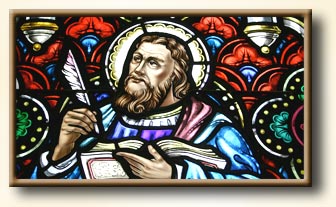|
If there is any one week more central to the Christian faith than any other it is Holy Week. This is the period ushered in by Palm Sunday running through Easter Even. Nowhere in the Book of Common Prayer will we find the term “Holy Week”. It is simply a popular and customary name which has long been in the Western Church and had its origins in the observances which began to appear in the fourth century in the Church in Jerusalem, that fertile seed-bed of so many Christian traditions.
The week runs the gamut of human emotion and experience as found in these last days or our Lord’s earthly life-triumph of Palm Sunday, the sharp encounters with enemies on Monday and Tuesday, the almost feverish ministry of healing, teaching and miracles, the contract of betrayal by a close follower on Wednesday, the intimate and sacramental fellowship of the Last Supper on Thursday, the calm agony of prayer in the Garden later that night, and then the arrest by the retainers of the High Priest, the trials, the humiliations, the suffering and finally the death on the cross on Friday, the limbo of Saturday during which the Lord descended to the place of departed spirits, and finally the glorious and mighty triumph of the Resurrection and the empty Tomb on Easter.
What a kaleidoscope of events that is! No wonder that this week of all weeks in the Christian calendar is called “Holy” and marked by deep introspection, unusual devotion and daily worship.
The Book of Common Prayer provides for a service of Holy Communion on each of the first four days of the week. The story of Christ’s Passion is read for the Gospels on each day, using in order the accounts from the four Gospels. On Good Friday it has long been customary in most Anglican churches to have only the Ante-Communion or some special and appropriate observance, but the Book of Common Prayer does not forbid a Eucharist on this day, for which, indeed, it provides a Eucharistic Collect, Epistle and Gospel.
Easter Even is also generally observed by using the Ante-communion, although again, the Book of Common Prayer provides for the possibility of a Holy Eucharist. This day, too, has long been the special occasion for baptisms, in keeping with the new life in the Resurrection signaled by the coming Easter Day. It is worth noting, in passing, that the Book of Common Prayer calls the sixth day Easter Even, not “Holy Saturday”, a term which has crept into partial usage from the Roman Church. And, again, the name for Easter is “Easter Day”, not “Easter Sunday”.
There is no other period in the Christian year which contains so much sharp alteration and contrast between joy and sorrow. The sorrow, the tragedy, the pain, are properly to be remembered, and felt by Christians, for our Blessed Lord experienced these to the fullest extent in the week’s events leading to the physical and psychological agony of His Crucifixion. But faithful Anglicans also are aware of the joy of the Triumphal Entry as a portent of the eternal rule of God, the joy of the Last Supper as a testimonial of His presence left by the Lord, and the supreme joy of His triumph over death on Easter Day as a further and final sign of Christ’s deity and a promise to all who believe in Him.
No week means more to us. No week demands more of us. No week condenses the entire Christian message into so few days of packed action as Holy Week.
|



